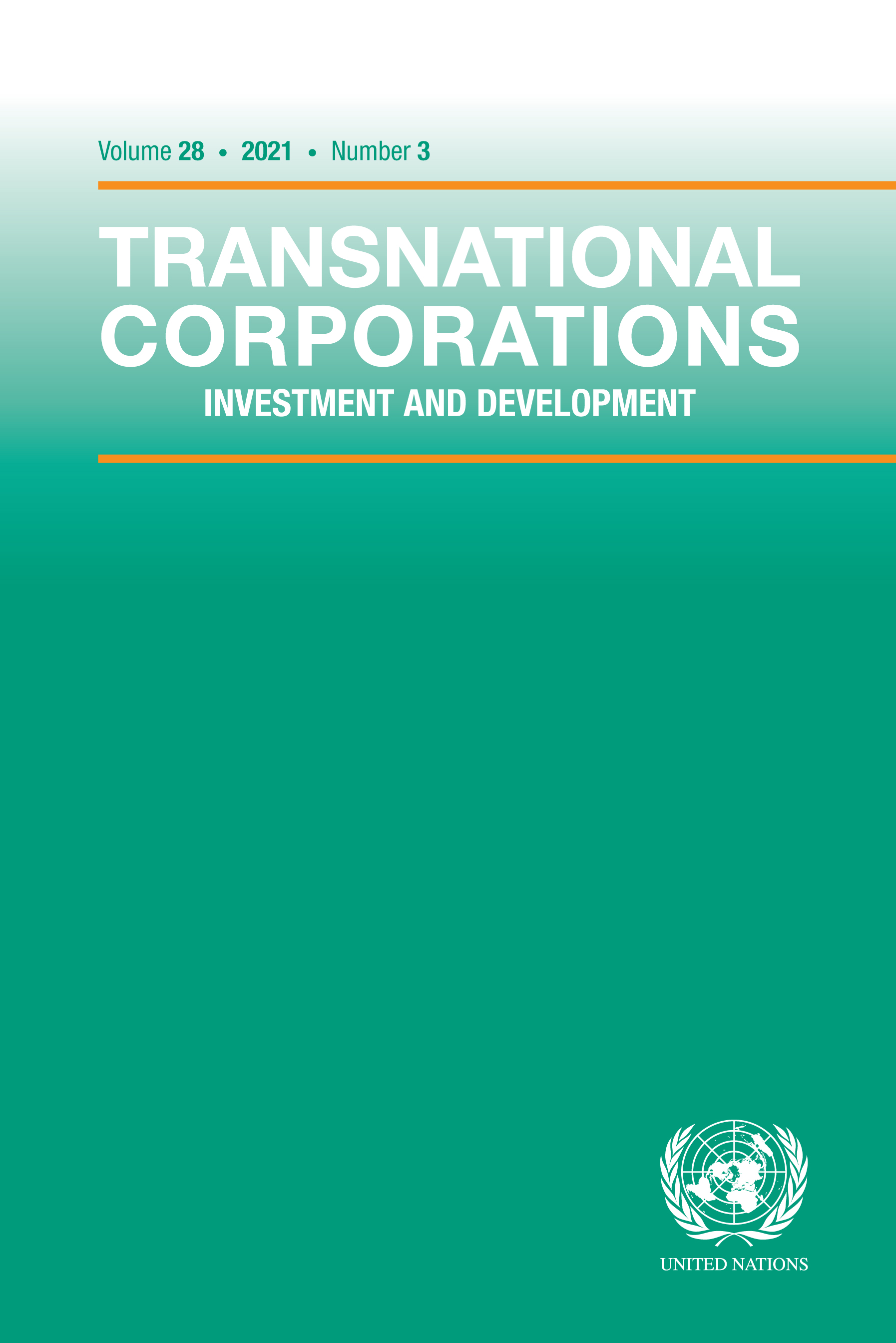-
Exports, trade costs and FDI entry: evidence from Japanese firms
- Source: Transnational Corporations, Volume 28, Issue 3, Dec 2021, p. 1 - 34
-
- 22 Dec 2021
Abstract
Why does aggregate foreign direct investment (FDI) fall with distance? We conjecture that high trade costs adversely affect FDI entry decisions in a dynamic setting, even when controlling for previous export experience in foreign markets. We test this hypothesis using Japanese firm-level data for the period of 1995–2018, and find that the probability of FDI entry decreases with distance. We conclude that trade costs limit a firm’s ability to assess foreign market uncertainty. As a result, a firm may exit a foreign market before realizing the potential profitability and never establish an affiliate there. This result is highly relevant for policymakers, as it proves that trade liberalization and FDI facilitation policies may reinforce each other, resulting in a compound effect for both exports and FDI.





